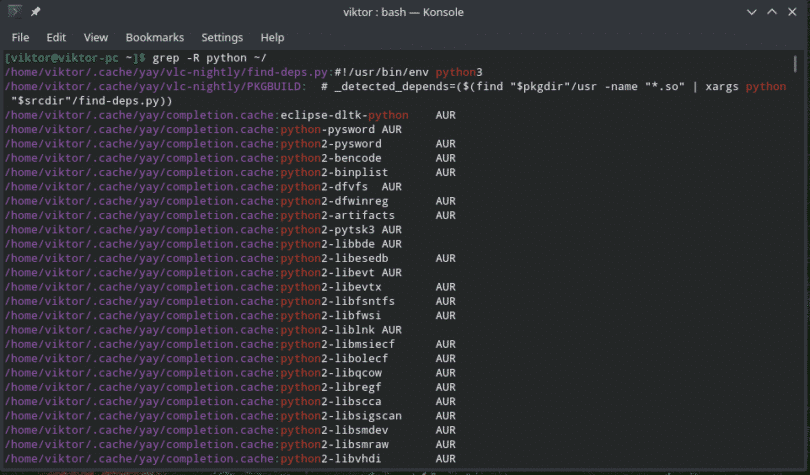

#Find any file grep how to#
You learned how to find files by content under UNIX and Linux using various commands. $ find /dir/to/search -iname "file-pattern" -print0 | xargs -I " : Search for " main(" string using the grep in a file found by find command. $ find /dir/to/search -name "file-pattern" -print | xargs grep "word-to-search" grep pattern -r -include.cpp -include.h rootdir. r is used to search for the specified directory recursively. finding all lines containing occurrences of any of four strings: grep -F. Using find command to search files by words or string The Find and Locate commands are used to search for files on the system, while grep is used to search for files based on the text they contain. NAME grep, egrep, fgrep - search a file for a pattern SYNOPSIS Plain call with. The 2>/dev/null used to hide permission error message by sending stderr to /dev/null. The fgrep or -f option passed to the grep interprets PATTERNS as fixed strings, not regular expressions (regex). Example: grep docker logs docker logs nginx 2>&1 grep '127.'. This is the default when there is more than one file to search. GitHub Gist: instantly share code, notes, and snippets. -H Print the file name for each match.-n : Prefix each line of output with the 1-based line number within its input file.$ grep -color=auto -iRnH 'getChar() ' *.c all of the lines that do not match the search string, rather than printing the lines. You may also need to display filenames and numbers, hence pass the -H option: Beginning at the first line in the file, grep copies a line into a. $ grep -color=auto -iR 'getChar() ' *.c Displaying file names and line number for searched patterns You can highlight patterns easily while searching large number of files by passing the -color option as follows:

$ ls -l | grep -i -E 'resume.doc|wife-birthday-party.png' Highlighting searched patterns $ ls -l | egrep 'resume.doc|wife-birthday-party.png' For instance, run the ls command and search for resume.doc and wife-birthday-party.png using the following syntax: $ egrep 'foo|bar' *.conf Finding files by content using shell pipesīoth grep command or egrep command works on input provided from files or stdin or shell pipes. For example, find two words named foo and bar in all conf files:


 0 kommentar(er)
0 kommentar(er)
